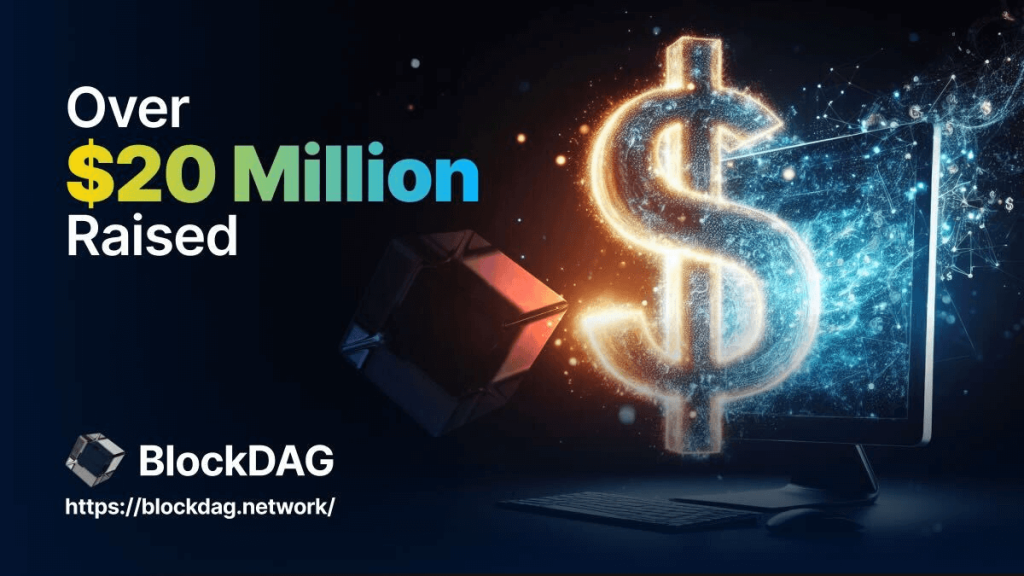Why Are DAOs So Important for the Future of Business?
Disclaimer: The Industry Talk section features insights by crypto industry players and is not a part of the editorial content of Cryptonews.com.

First came NFTs, then the metaverse and Web3 – now DAOs are the next big concept taking the crypto scene straight to mainstream headlines. Last year, it was ConstitutionDAO’s failed attempt to purchase an original copy of the US Constitution that catapulted the term into common parlance. More recently, DAOs have been associated with everything from the celebrity-fueled frivolity of the Bored Ape Yacht Club to the gravely serious matter of supporting Ukraine as it defends itself in the Russian conflict – a DAO fundraiser that Ethereum founder Vitalik Buterin is reportedly now supporting.
But does the idea of the DAO have any place in reality, in a more stable world? It seems more than likely that the excitement from Silicon Valley is justified when we consider some of the most significant issues facing today’s businesses.
A Push for Transparency
Companies today are under more pressure than ever before to demonstrate transparency in how they do business. This imperative takes many forms. Startups and privately owned firms work with their individual investors to agree on an appropriate level of transparency regarding financial matters. For publicly traded firms, financial transparency becomes a matter of compliance for the shares to remain listed on a stock exchange. Firms pay vast sums to third-party auditors to verify their financial statements, which is supposed to provide an assurance to investors that all is in order.
Of course, it doesn’t always work out so. Recent decades have featured a litany of corporate financial scandals, from US energy giant Enron in 2007 to Britain’s second-largest construction company Carillion in 2018 and German financial firm Wirecard in 2020. Each case is its own scandal, but what they all have in common is that the checks and balances that were supposed to provide transparency ultimately failed.
Now, the push for transparency extends to other areas that come under the broad banner of environmental, social, and governance (ESG) matters. Thanks to a raft of new legislation emerging from the EU, the US, and the UK, financial firms are now obliged to disclose the carbon footprint of their investments, creating further tension between shareholders and the boardroom.
Under the social part of this initiative, employers are also coming under increasing pressure to provide transparency to workers over compensation and benefits as a way of demonstrating that there’s no bias in the way people are paid.
A Less Corruptible Model?
It all comes back to an age-old problem – people are easily corrupted when it comes to matters of money and power. We appoint third parties like auditors, brokers, and clearinghouses into processes as a way of introducing trust and transparency. But once those parties are part of the process, they’re as corruptible as anyone else.
So in light of the properties that blockchain brings to the table, it becomes clearer exactly why the idea of a DAO is stirring so much excitement in Silicon Valley circles. Within the crypto scene, the DAO has become the go-to model for launching a new decentralized finance protocol, with high-profile examples including MakerDAO, CurveDAO, and Uniswap.
These DAOs operate under the governance of anyone who holds their native token. Tokens bestow voting rights, effectively handing over decision-making capabilities to a decentralized group of holders. Moreover, every proposal, decision, and vote is recorded completely transparently on the blockchain, offering a transformational way of doing business.
It’s akin to removing the management hierarchy from an organization completely and allowing everyone – shareholders, employees, customers – to own a stake in the organization and have a say in how it’s run. So if a trader decides they like using a particular decentralized exchange, they can engage with it as a stakeholder as well as a user. If a gamer loves a particular NFT game, they can have a say over future development and features.
What’s more, while there’s a need to have the underlying code audited from a security perspective, there’s no need to have a third party verify transactions because everything’s witnessed by the blockchain network.
Bringing DAOs to Life
So if an entrepreneur has a great idea, and believes it’s ripe for launching a DAO, how do they go about setting it up? Now, decentralized DAO launchpads like UpLift DAO make it easy for anyone to get involved with a DAO. It’s a platform that aims to unite disruptive crypto startup projects with everyday retail investors looking for passion investments.
For project founders, UpLift DAO offers access to a group of early venture investors and the business infrastructure needed to bring an idea to life. In the build-up to launch, UpLift leverages its decentralized community of VCs, influencers, exchanges, and market makers to ensure that the initial token offering is a success.
Furthermore, IDOs conducted on the UpLift platform don’t have artificially high barriers to entry. The minimum stake is just 100 LIFT tokens (currently around USD 14), ensuring a genuinely fair token distribution. The platform is cross-chain, giving projects access to a wide range of markets on any EVM-compatible blockchain, including BSC, Avalanche, Polygon, and Fantom.
UpLift has already raised over USD 1 million in five initial DEX offerings, with more in the pipeline for the coming months.
With projects like this making it easy for anyone to launch a DAO and demonstrate a willingness to do business transparently and equitably, it’s easy to understand why Silicon Valley is so excited. As the DAO model proves its success, it will become a matter of competition to see whether or not the new decentralized way of engaging with a business will supersede the historic centralized ownership paradigm.



